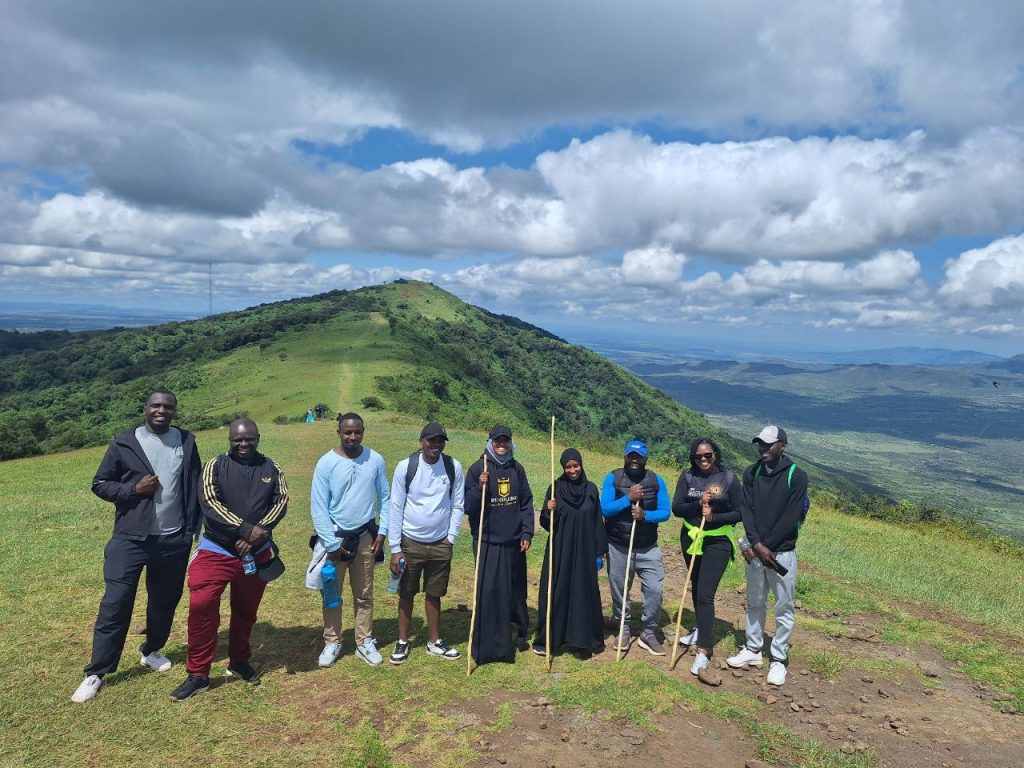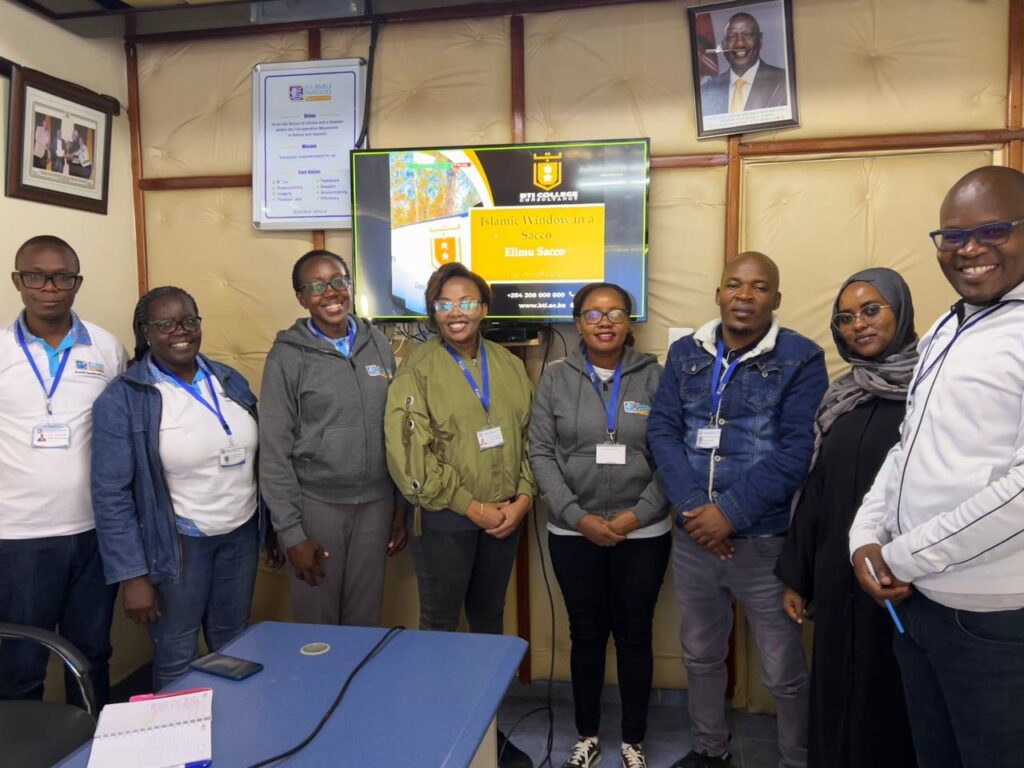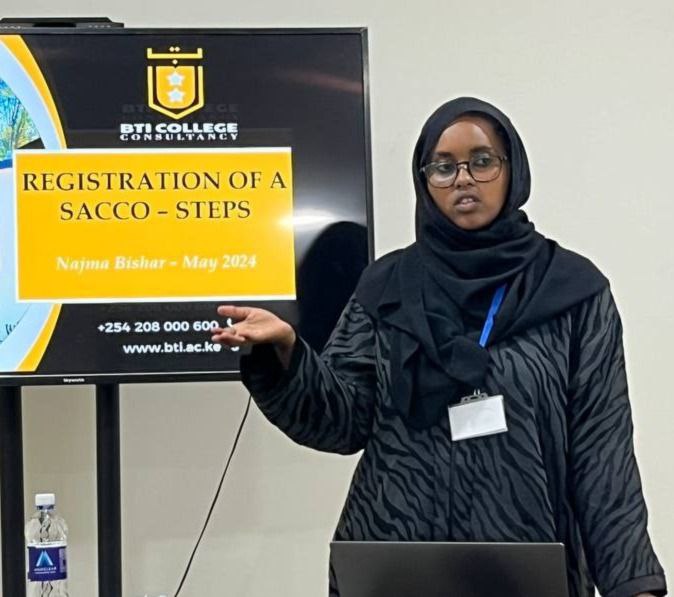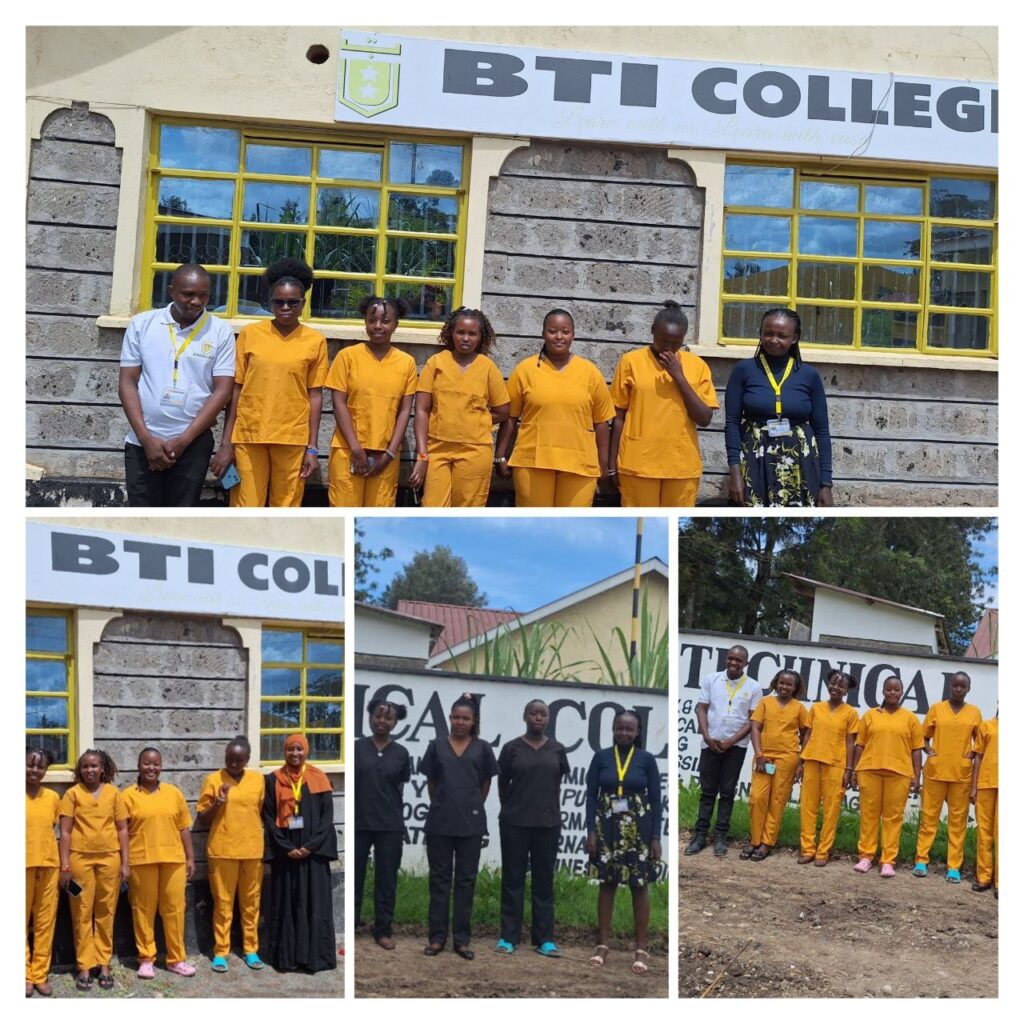Artificial Intelligence Is Here — Are You Ready?

In recent years, Artificial Intelligence (AI) has moved from science fiction into everyday reality. From the moment you unlock your phone using facial recognition, to when you ask your virtual assistant for the weather, or see personalized ads while scrolling — AI is already deeply embedded in our lives. But what exactly is AI, and […]
BTI Colleagues Conquer Ngong Hills

On a bright and breezy Saturday morning, a group of BTI colleagues laced up their hiking boots, packed their snacks, and set off on a self-organized adventure to the scenic Ngong Hills. Though not an official BTI College event, the hike was a great show of camaraderie, self-motivation, and the shared value we place on […]
CALLS FOR REGULATION GROW AMIDST ISLAMIC FINANCE EXPANSION IN SACCOS

Najma Bishar, our executive director, met yesterday with Elimu Sacco’s senior management to discuss the modalities of establishing Islamic financial products and services. Islamic finance continues to gain prominence within the Sacco sector, attracting more major players to this lucrative market serving a population of six million. This growing interest from both Saccos and their […]
WELCOME THE FOURTH COHORT OF BTI CONSULTANCY APPRENTICES!

We were honored to host the newest group – our fourth cohort since May 2023! The virtual program was unveiled today by BTI College Chairman, Dr. Tego Wolasa. This 6-month apprenticeship targets industry pros with weekly classes & on-the-job training covering: Month 1: Foundations of Consulting & Business Month 2: Core Consulting Skills – Analysis […]
BTI COLLEGE CAREGIVING GRADUATES START ATTACHMENT

BTI College proudly sends forth its second batch of Caregiving graduates to their attachments at various hospitals. Witnessing this milestone are Mr. Dennis Wambua, Head of the BTI Technical Institute; Qamar Bishar, Head of the BTI Virtual Institute; and Purity Gitome, their caregiving lecturer and the esteemed 2024 BTI College Lecturer of the Year. The […]
BTI College Strengthens Commitment to Islamic Pensions at APTAK Workshop

BTI College, actively participated in the Fund Managers Association workshop organized by APTAK (Association of Pension Trustees and Administrators of Kenya). The event was held at the College of Insurance in Nairobi, South C, and our Executive Director, Madam Najma Shariff, represented BTI College at the workshop. As an active member of APTAK dedicated to […]
BTI College Facilitates Launch of Moyale Constituency Strategic Plan
MOYALE | BTI College Leads Strategic Development for Northern Kenya BTI College proudly marked another milestone in its consultancy work with the successful launch of the Moyale Constituency Strategic Plan, drafted and compiled by the college’s expert team. The launch was officiated by the area Member of Parliament, Professor Guyo Wako Jaldesa, in a ceremony […]
BTI COLLEGE IN MERU
Madam Najma Shariff, Executive Director at BTI College addressing the Solution Sacco board during the consultancy contract sign-off ceremony at the Solution Sacco Headquarters. The Meru-based sacco, with a balance sheet of KES 10 billion, is in the process of creating an Islamic window to address customer needs in over a dozen of its branches, […]
“The best research is listening to the customer.”
BTI College – Mombasa conducted a market survey for Momentum Sahih. Beyond training, BTI has cultivated strong research capabilities, completing over a dozen projects for both private and public entities, including feasibility studies. Our research involves not just ticking boxes but going beyond quantitative data to explore the underlying motivations through qualitative studies, sometimes employing […]
Heart and Dedication: Meet BTI’s 2024 Lecturer and Student of the Year!
At BTI College, we celebrate more than academic excellence — we honor passion, service, and the power of impact. 🌟 Lecturer of the Year 2024: Purity GitomeBeyond delivering curriculum, she instills empathy, purpose, and practical knowledge for a life of service. A true role model to […]